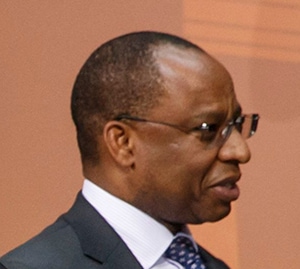Absa Group's new CEO has a controversial past.

Daniel Mminele took over as CEO of Absa Group in January, not long after Barclays completed its divesture of the South African banking group. His appointment, however, is not without controversy.
Mminele is a former deputy governor of the Reserve Bank of South Africa, which is the subject of intense debate within President Cyril Ramaphosa’s ruling African National Congress over a resolution to nationalize it. Former Absa CEO Maria Ramos led the institution for 10 years. René van Wyk had been interim CEO since February 2019.
Absa, a top-four bank in South Africa, operates in 12 other African countries. It’s one of the continent’s bigger players, with a balance sheet of over $90 billion. But like most African banks, it is seeing increased disruption. This is a headache that Mminele, a UK Chartered Institute of Bankers alumnus, will have to focus on.
Mminele “has been with the central bank as a regulator for a long time, and we have to see how he re-energizes for the new tasks of leading a financial institution,” says Moses Moyo, an independent financial analyst who focuses on sub-Saharan Africa. “Banking has its own challenges; pressing demands to deal with, digital strategies, and pressure to integrate fintechs and mobile money while remaining relevant in the traditional banking sense.”
Mminele previously served at Commerzbank and Africa Merchant Bank. But his appointment invited criticism, as it seemed to confirm that South African finance institutions are recycling executives with government ties.
“The main challenges relating to Mminele’s shift from the central bank to Absa will be his ability to transition from a conservative bureaucrat by design to an entrepreneurial business leader in charge of an organization [in transition],” says Khaya Sithole, a longtime chartered accountant and financial analyst at FirstRand Banking Group.
“The Absa conundrum is that its standing as one of the traditional legacy banks makes its capacity to respond to disruptors rather lethargic,” Sithole adds. “But that is primarily a feature of the local rather than the pan-African market. In the pan-African market, the alliance with Barclays provides access that now needs to be capitalized on.”



